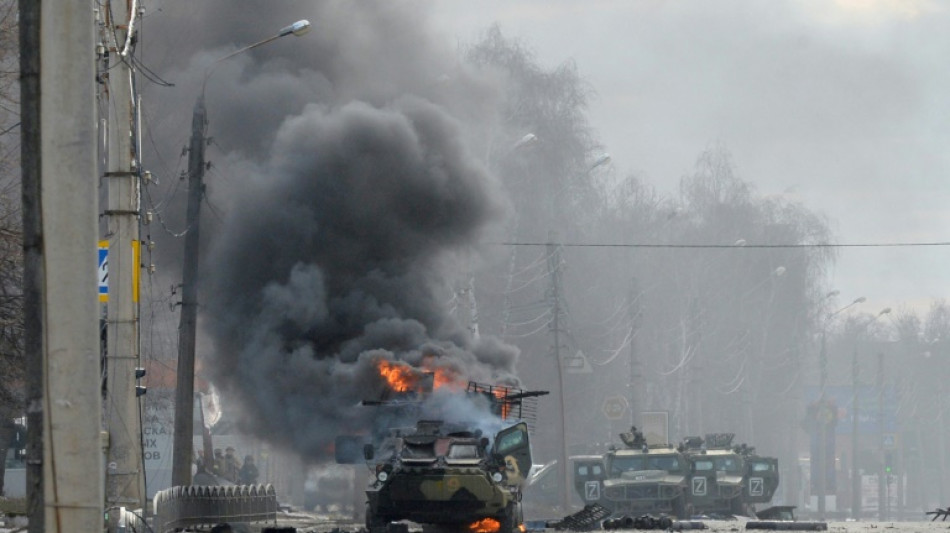
Kharkiv's grim fate recalls epic Soviet war movies

Explosions, sirens, ruined homes. Olena Ostaptchenko's only point of reference for what is happening in her home town of Kharkiv is Soviet-era movies about the horrors of World War II.
Kharkiv is Ukraine's second city, largely Russian speaking, close to the Russian border and one of the first targets of Moscow's all-out invasion of its smaller neighbour.
For more than a week shells and missiles have been raining down on the town, leaving residential blocks and civilian administrative buildings shattered, like a scene from the 1940s.
"It looks like scenes from that war we knew from books and films," said Ostaptchenko, a writer for an online news site.
In normal times, Kharkiv is a city of 1.4 million people, but many have fled, despite what Ostaptchenko called their "naivety" in waiting until war was on their doorstep.
"We thought we were in the 21st century. The Russians are surely not going to bombard us!" she said.
Neither the journalist, nor her 25-year-old son, an actor, and his partner have yet left the city, but they are scared to go outside and live in the corridor and the bathroom of their flat.
Several civilians have been killed in the city just venturing outside for groceries and normal life is impossible.
"Today, it was fairly calm, and life revived a little, but when you can hear a plane the brutal horror come back to you. It's like the films of our childhood," she told AFP.
Before the shelling, Olena hoped to stay in the city whether under Ukrainian rule or Russian occupation, but she now admits "against bombs and missiles I can do nothing".
Two days ago she was ready to flee, but her son has become a hospital volunteer and did not want to go. So she stayed.
- Makeshift metro shelter -
Ostaptchenko fears she could be driven mad by loneliness if she goes. By staying she hopes to act as a calming influence on her son, to persuade him not to take senseless risks.
But her formerly vibrant city, once briefly the capital of Soviet-era Ukraine, is unrecognisable. Public transport is halted and pedestrians and cyclists are now rare.
Kharkhiv's metro tunnels, like those in the capital Kyiv, have been transformed into a huge air raid shelter. Electricity, water and communal heating systems regularly cut out.
Supermarkets open for brief spells, a few hours a day, but many shelves are bare and meat is particularly scarce.
What keeps Ostaptchenko going is her work providing news, even if she does not know if and when she will be paid.
"It helps me to pull myself together, to take a step back," she said. "Until a new plane pops up."
There are expected to be new talks between Ukrainian and Russian negotiations on Thursday, but Ostaptchenko does not hold out much hope for a breakthrough.
"I don't know what we can place our hopes in," she lamented, suggesting that only the overthrow of Russia's President Vladimir Putin could halt the fighting.
N.Roberts--TNT